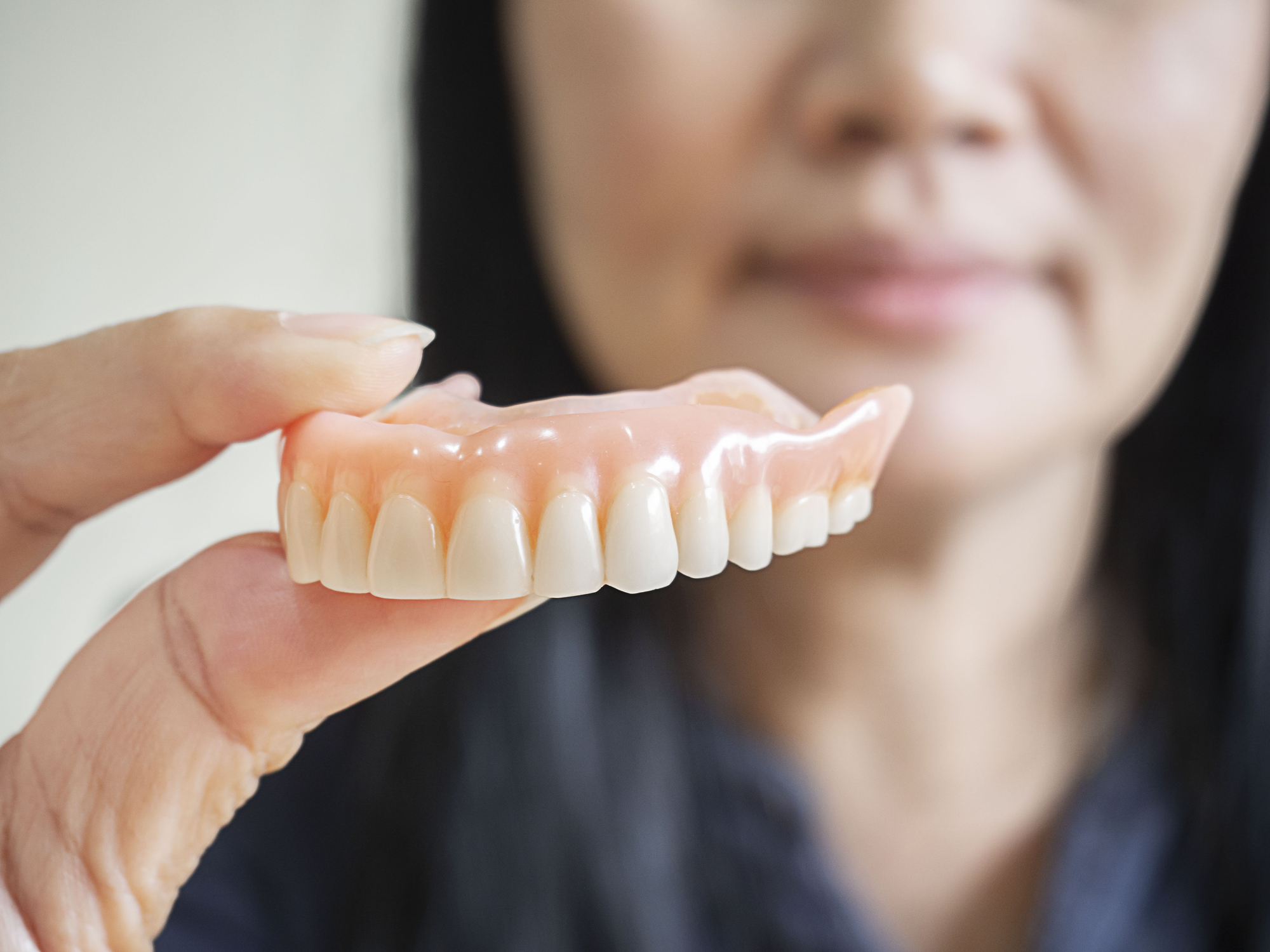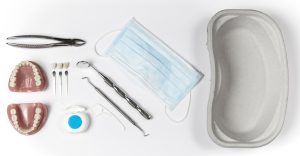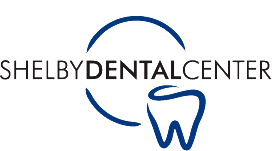
26 Sep Do Your Dentures Still Fit? Here’s When to Consider a Reline or Rebase
Do your dentures feel loose, unstable, or uncomfortable? You’re not alone; many people experience these problems as their mouths naturally change over time. The good news is that you don’t always need brand-new dentures. Two common treatments, denture relining and denture rebasing, can restore the comfort and stability you need.
Both are part of routine denture services that extend the life of your dentures while protecting your oral health. Knowing the difference can help you decide which one is right for you.
Let’s walk through what relining and rebasing involve, when they’re needed, and where you can find expert care in Calera.
Quick Summary
- Denture relining reshapes the inside of your existing denture for a better fit.
- Denture rebasing replaces the pink acrylic base while keeping your denture teeth.
- Signs you may need an adjustment include looseness, sore spots, or gum irritation.
- These treatments protect your comfort, oral health, and overall confidence.
- Shelby Dental Center in Calera provides expert denture relining and rebasing services.
What Is Denture Relining?
Relining is a way to improve the fit of dentures without replacing them completely. Over time, your gums and jawbone change shape due to natural bone loss, weight changes, or aging. These shifts can cause dentures to slip, rub, or feel unstable.
A reline involves adding new material to the inside of your denture base so it molds to your gums again. This adjustment improves suction, stability, and comfort.
Types of Denture Relines:
- Soft Reline – Made with flexible material, great for sensitive gums.
- Hard Reline – Uses durable acrylic, providing a longer-lasting fit.
- Chairside Reline – Completed in the dental office in a single visit.
- Laboratory Reline – Sent to a lab for a more precise and longer-lasting result.
Tip: If your dentures are only a few years old but don’t feel secure, a reline may be all you need.
What Is Denture Rebasing?
Rebasing is a more extensive option compared to relining. Instead of just reshaping the inside, rebasing involves replacing the entire acrylic base while keeping your current denture teeth.
It’s usually recommended when the denture base is cracked, worn out, or stained, but the teeth are still in good condition. A rebase provides a stronger, fresher foundation without having to start over with brand-new dentures.
When to Consider Denture Rebasing:
- Your denture base is cracked or warped.
- The base is discolored or has a lingering odor.
- Your denture feels unstable even after relining.
- You’ve been using the same dentures for 5–7 years or longer.
Signs It’s Time to Adjust Your Dentures

Dentures don’t last forever. Even with great care, changes in your mouth or wear on the denture itself can affect the fit. Watch for these signs:
- Loose or slipping dentures.
- Irritated or sore gums.
- Trouble chewing or speaking clearly.
- Bad breath or denture odor.
- Visible cracks, chips, or worn spots.
You can find a trusted dentist who fixes dentures right here in Calera at Shelby Dental Center.
Why Denture Adjustments Matter
Comfort isn’t the only reason to reline or rebase dentures. Poorly fitting dentures can cause bigger health concerns, including:
- Gum irritation and a higher risk of infection.
- Uneven pressure on your jawbone, leading to faster bone loss.
- Headaches or jaw discomfort caused by shifting dentures.
- Difficulty eating a variety of healthy foods, which can affect your nutrition.
Regular adjustments keep your dentures working properly and protect your long-term oral health.
How Often Should Dentures Be Relined or Rebased?
Most dentists recommend having dentures checked every one to two years. Relining may be needed during that time to keep the fit secure. Rebasing is often needed every five to seven years, depending on wear and tear.
Your dentist will decide which option makes sense by checking:
- The age of your dentures.
- The condition of your gums and jawbone.
- The type of material in your current denture.
- Any damage or discomfort you’re experiencing.
FAQs About Denture Relining and Rebasing
What’s the main difference between a reline and a rebase?
A reline reshapes the inside of your current denture. A rebase replaces the entire acrylic base while keeping the same teeth.
How long does the process take?
A chairside reline can be done in one visit. Lab relines or a rebase usually take one to three days.
Can I reline or rebase my dentures at home?
No. DIY kits may damage your dentures or harm your gums. Always see a dental professional for safe and lasting results.
Restore Comfort with Shelby Dental Center
If your dentures are loose, irritating your gums, or no longer look or feel right, don’t wait to get help. Relining or rebasing could restore their fit and improve your daily life.
At Shelby Dental Center in Calera, we provide trusted dental & denture services, including denture relining and denture rebasing in Calera. Our team has years of experience helping patients keep their dentures secure, comfortable, and long-lasting. Let’s get your dentures fitting like new again so you can smile and eat with confidence.
Schedule Your Denture Adjustment Today
If your dentures feel loose, cause irritation, or just don’t fit like they used to, it’s time to let the team at Shelby Dental Center help. Our expert dental and denture services in Calera include precise denture relining and rebasing to restore the comfort, function, and stability you deserve.
Don’t wait for the discomfort to worsen; contact us today online or call us at 205-235-3371 to schedule your consultation and get back to smiling with confidence.



No Comments